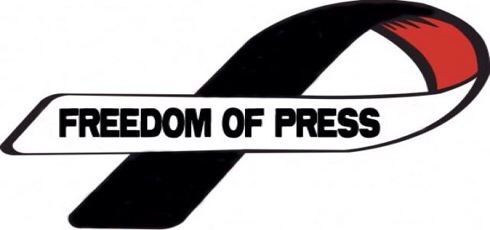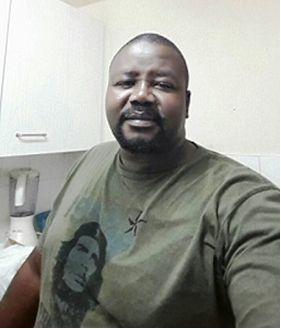Despite the killings/deaths journalism will never die
Journalism, they said is a noble profession. But who is a Journalist? An Australian Satirist, Karl Kraus (1874-1936) referred to a Journalist as “a person without any ideas but with an ability to express them; a writer whose skill is improved by a deadline: the more time he has, the worse he writes.” Norman Mailer American writer almost shared the same views when he stated that “if a person is not talented enough to be a novelist, not smart enough to be a lawyer, and his hands are too shaky to perform operations, he becomes a journalist.”Whatever definition you have, I am a journalist by profession, through not in active practice at present.
It was, to be best of my memory in 2004 that I joined the train of media practitioners. I initially wanted to become a Lawyer but my plans were changed by an advice I got from Sorie Sudan Sesay, then editing the Independent Observer newspaper. “What about journalism…?” he asked.
With little or no time to waste, I made up my mind – within days, a country boy who had been given a ‘visa’ by the RUF(courtesy of the civil war) to enter Freetown from the province, unprepared, was now covering issues for people’s consumption. From one court room to the other – with the typical looks of a ‘JC from up line’’; sniffing for something news worthy-especially bad news, for bad news makes the headline. So I was reading my first degree and at the same time, practicing, or better put, getting on the job trainings from the Independent Observer team.
Hey, but wait a second, my going into journalism led to me having another life – “Journalism is popular,” says G. K. Chesterton , but that “it is popular mainly as fiction. Life is one world, and life seen in the newspapers another. “- my first story, was, to me an impact. Notwithstanding the pains and grammatical anguish my then Editor, Sorie Sudan Sesay went through in editing, all I cared for was my by-line when the paper came out the following morning. “Thanks to the free but not-requested-for, visa I got from the RUF”, I must have said to myself.
I was to later join Harry Yansaneh et el at For Di People newspaper .That was when in my view, Paul Kamara was unfairly serving a jail term. I served the newspaper even at crucial times, especially following the killing/murder of Harry Yansaneh. That was a terrible moment though. From For Di People, I got a short term job with Search For Common Ground/Talking Drum Studios and later joined Awoko newspaper, where my full time journalistic sojourn came to end and then entered into the PR world, but still with journalism as my profession. Even with that, I have always enjoyed writing but occasionally.
In a democracy, the role of the media cannot be overemphasized. And if the media is so crucial in the attainment of democratic credentials, it then would mean there is the need for media practitioners to enjoy their basic constitutional rights like the right to free expression among others. Ann Hammerstad wrote in the work titled Africa Commitments to Democracy in Theory and Practice…”that “democracy …should not only be understood as a majority rule and the holding of regular elections. It includes all the paraphernalia of democratic governance…such as freedom of speech and association…” And these belongings include but not limited to ensuring the full protection of one’s life and property, which directly falls under the purview of a police force in a given country, with Sierra Leone not being an exception.
From a practical standpoint, even though we have made tremendous progress over the years in terms of creating the enabling environment for journalists and journalism,-with the creation of IMC, the political commitment to get an FOI law etc, we are still faced with the challenge of going the extra mile in ensuring the full protection of media practitioners; a case in point being, for the second time, the brutal murder of a journalist, this time, Ibrahim Foday, after Harry Yansaneh was also brutally killed.
The last time I met Ibrahim Foday was in Binkolo, where he had gone to cover the paramount chieftaincy election in the Safroko Limba chiefdom. I was happy, being a native of that chiefdom with the media attention he gave to that election by ensuring his regular presence in the chiefdom. Today Ibrahim Foday is nowhere to be seen. He is dead, but love, they say, ”is stronger than death even though it can’t stop death from happening, but no matter how hard death tries it can’t separate people from love. It can’t take away our memories either. In the end, life is stronger than death.”
The rule of must take precedence in all that we do. Ex-President Ahmed Tejan Kabbah wrote in his book, titled, Coming From The Brink In Sierra Leone … that “…good governance means accountability….respect for the rule of law, the promotion of human right…”.However, I am beginning to contemplate, reading yesterday’s Awareness Times, whether the Police can do as expected, though they have some good start. So SLAJ should have a watchful eye here. A good court case starts right from police investigations; a poor and callous investigation (am not inferring here that such is happening now) leads to a matter being rubbished in a court of law by even a young Law School graduate in court.
That said, let me here state that we have also lost another gentleman in the media profession in the person of Tayyib Bah just as was the death of Olu Gordon two months ago. I last met him three months back to discuss official NRA matters. He had sent a letter to the Commissioner-General introducing his Yellow Pages and had made some good PR suggestions. I was, at the time working with NRA in the Public Affairs Unit, and had been asked by the Acting Commissioner-General for an advice to his suggestions. All I had later was about his illness, suddenly his death later. Rest in peace Tayyib for we shall meet again.
You are gone but remember that “Journalism can never be silent: that is its greatest virtue and its greatest fault. It must speak, and speak immediately, while the echoes of wonder, the claims of triumph and the signs of horror are still in the air.” For Olu, he wanted a change in Sierra Leone and journalism was his short-term weapon because he knew and believed that if one’s aim is to change the world, “then journalism is a more immediate short-term weapon.” Lastly know for sure, that despite the killings/murders, journalism will never die.
Stay with Sierra Express Media, for your trusted place in news!
© 2011, https:. All rights reserved.






